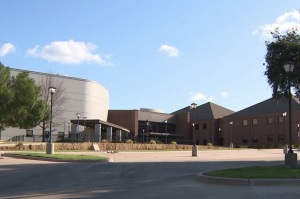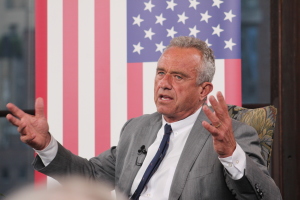Megachurch Pastor: Avoid This 'Forbidden Phrase' to Build Successful Church

To lead a successful church, pastors must avoid the "forbidden phrase" that blames others instead of accepting personal responsibility, Pastor Craig Groeschel of Life.Church said in a recent leadership podcast.
Groeschel, who heads one of the largest churches in the U.S., explained in his leadership podcast series that it is important for evangelical church leaders to avoid this forbidden phrase because "when the leader gets better, everyone gets better."
The forbidden phrase, the pastor says, involves putting blame on your fellow church leaders instead of accepting responsibility yourself. In other words, saying "our people won't ___" instead of "I have not led them to ___."
This can take on many different forms, including "our volunteers, they just don't ___" and "our sales guys, they just don't ___."
Groeschel says that this type of mentality is toxic to the church work environment, as it starts to put blame on others when in reality, the church leader needs to accept responsibility and lead by example.
"Any time you start to make an excuse, you need to remember, you can make an excuse, you can make a difference, but you cannot make both," Groeschel says.
Instead of condemning others, a great church leader uses himself to cast a vision of what how he wants his church to run.
"A great leader never gives blame, a great leader always takes responsibility," the pastor says. "Leaders lead people. You move them to a desired action."
Another reason to avoid the forbidden phrase in leadership is because it makes room for qualifiers, which are also toxic to a successful church.
Whenever you start to cast the blame on your fellow church leaders, you are also inadvertently blaming your church congregation too.
"Whenever you start to say this [forbidden phrase], you're going to be tempted to discount or qualify your area, what you do, where you live. Watch for the reason why you think you're allowed to say some version of the forbidden phrase," the successful megachurch pastor warns.
Ultimately, use of the "forbidden phrase" makes for an unhealthy church culture that lacks vision and values, has weak communication, avoids tough issues, offers little to no feedback, limits the abilities of the whole team and lacks goals and direction.
With these dangerous attributes, a church cannot thrive and celebrate its wins, but will rather wallow in its losses and weaknesses, Groeschel says.
The megachurch pastor adds in his talk that conflicted church leaders need to decide for themselves if they can work well in their church culture or if they need to move on to greener pastures.
Some questions a church leader can ask themselves to make this difficult decision include: "Are the values [at your church] slightly different or massively different? Can you continue to make a significant difference or do the differences in values limit your ability to do what you can do? If things don't change significantly, can you see yourself being supportive of leadership two years from now? Do you think that your values are so different that it would be a relief to most of your leaders if you actually went to a different place?"
Life.Church was also voted the "most innovative church" by Outreach Magazine in 2007 and 2008.




























